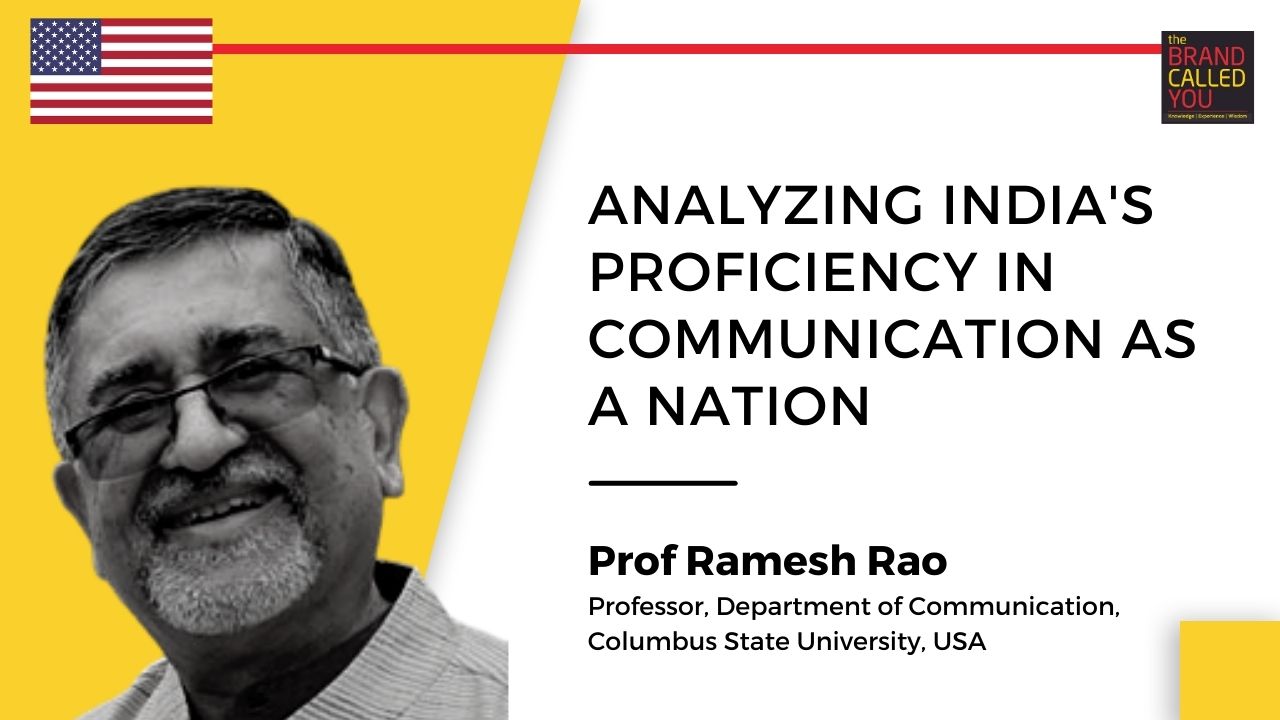Prof Ramesh Rao, Professor, Department of Communication, Columbus State University, USA
- Ramesh Rao is a Professor in the Department of Communication at Columbus State University.
- He is an author of several books.
Podcast
Overview
Communication has always been the base of our interactions with each other, but it still is one of the most difficult skills to learn. Like any other skill, knowing about the theory of communication will not make us good communicators. We need to practice it everyday to become good at it. We have with us Professor Ramesh Rao to help us learn about what effective communication is and how one can become good at it.
00:36- About Prof Ramesh Rao
- Ramesh Rao is a Professor in the Department of Communication at Columbus State University.
- He is an author of several books.
- His latest book is titled “Communicating Across Boundaries: The Indian Way”.
- He is also the Chief Editor of the online portal “India Facts”.
06:36 – How do you define Effective Communication?
- It is the same as asking what is the time. It is one of the paradoxes because knowing what effective communication is does not make us good communicators.
- Just like anything else is life, knowing the theory of something does not make you good at doing it. You have to practice it everyday to become a good communicator.
- Communication is not all verbal, it is also those non-verbal cues that not everyone can notice. We have to practice noticing people’s body language and keeping our own body language right and choosing our words carefully.
13:43 – How does culture impact communication?
- There are differences in the cultures as to how they communicate. For example, in the US, people are taught to be more aggressive and boast about themselves.
- In Japan, the style of communication is more on the diffident vertical. Their talks are more self-effacing and as if they are very humble in their communication.
- While when it comes to India, we talk a lot over each other. We do talk modestly because we don’t want to come out as rude, but we also lack the discipline when it comes to judging others and putting them down.
17:55 – What was your hypothesis about your book?
- Most of the literature on communication has come mainly from the US but when we look at India, it has so many cultures and people are living together with so many differences.
- India has 22 official languages and a lot of us are raised learning more than two languages. In spite of all those differences we manage our conflicts and live together.
- India has been one of the strongest democracies in the world, but we decided we had to look at its history as well if we wanted to really understand how this all has been shaped, so that is what we did.
RESOURCES:
You can connect with Ramesh Rao | LinkedIn
CONNECT WITH US:
Love to give us 5 stars? ⭐⭐⭐⭐⭐ If you do, we’d love a review from you. Help us reach more people to keep them in the know as we talk to leaders, high achievers, and thought leaders from diverse backgrounds and nationalities. Excellence can come
from anywhere; stay in the know, and hear from emergent high achievers and gurus.
Stay updated with what’s shaping the world today through the latest The Brand Called You Podcast episode. Follow us on iTunes, Spotify, and Anchor.fm.
You can find us at:
Website: www.tbcy.in
Instagram: http://bit.ly/3HO7N06
Facebook:http://bit.ly/3YzJOaD
Twitter: http://bit.ly/3wMBOXK
LinkedIn: https://www.linkedin.com/company/tbcy/
YouTube: http://bit.ly/3jmBqfq
Chingari: https://chingari.io/tbcypodcast
Josh: http://bit.ly/3WWP0nB
Thanks for listening!
Profile
- Ramesh Rao is a Professor in the Department of Communication at Columbus State University.
- He is an author of several books.
- His latest book is titled “Communicating Across Boundaries: The Indian Way”.
- He is also the Chief Editor of the online portal “India Facts”.


